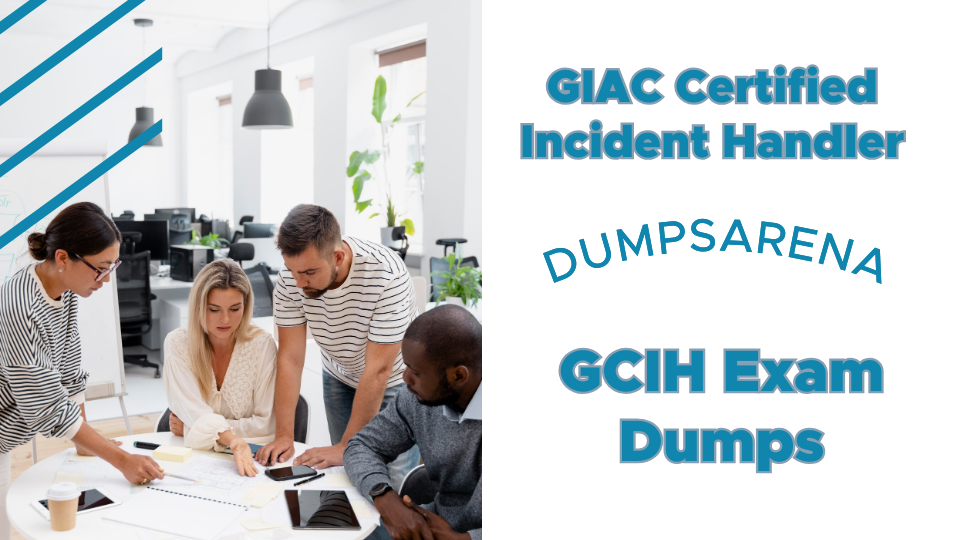Is the GCIH Certification worth it?
Are you looking to take your cybersecurity career to the next level? If so, then the GCIH certification might be exactly what you need. In today’s digital world, where cyber threats are ever-present, organizations are in desperate need of skilled professionals who can protect their valuable data and systems from malicious attacks. And that’s where the GCIH certification comes into play.
But what exactly is this coveted certification all about? How does it differ from other cybersecurity certifications out there? Is it worth the time and effort to pursue it? In this blog post, we’ll delve deep into the world of GCIH certification and help you decide if it’s the right path for you. So buckle up and get ready for an exhilarating journey through the realm of cyber defense!
What Is The GCIH Certification?
GCIH, which stands for GIAC Certified Incident Handler, is a renowned certification offered by the Global Information Assurance Certification (GIAC). This certification is specifically designed to validate the skills and knowledge of professionals in detecting, responding to, and resolving computer security incidents.
In today’s digital landscape where cyber threats are becoming increasingly sophisticated, organizations need skilled incident handlers who can effectively identify vulnerabilities and mitigate risks. The GCIH certification equips individuals with the necessary expertise to handle various types of security incidents such as malware outbreaks, network breaches, and data exfiltration attempts.
To obtain this highly regarded certification, candidates are required to demonstrate their proficiency in areas such as incident response management frameworks, identification techniques for different types of attacks, analysis of malicious code samples, and effective communication during a crisis situation. The exam consists of multiple-choice questions that assess practical knowledge rather than mere memorization.
By earning the GCIH certification, professionals can enhance their credibility within the cybersecurity industry. It showcases their ability to handle real-world security incidents efficiently and helps them stand out among other job applicants or potential competitors. Additionally, it opens up doors for career advancement opportunities as many organizations prioritize hiring certified incident handlers due to their proven expertise in handling critical situations.
Overall, the GCIH certification serves as a valuable asset for anyone aspiring to excel in the field of cybersecurity incident handling. Whether you’re an experienced professional looking to upskill or someone starting your journey into this exciting domain, GCIH offers comprehensive training and validation that will undoubtedly boost your career prospects.
So why wait? Take charge of your cybersecurity future today!
The Different Types Of GCIH Certification
There are several different types of GCIH certification available, each designed to cater to specific areas within the field of cybersecurity. These certifications offer professionals the opportunity to specialize and demonstrate their expertise in a particular domain.
One type of GCIH certification is the Certified Incident Handler (GCIH) credential. This certification focuses on incident response and provides individuals with the necessary skills to effectively handle security incidents, investigate breaches, and mitigate risks. It covers topics such as identifying attack vectors, analyzing malware, and implementing incident response procedures.
Another type is the GIAC Certified Enterprise Defender (GCED) certification. This credential goes beyond incident handling and delves into broader defense strategies for organizations. It equips professionals with knowledge about building secure networks, implementing defensive measures, conducting vulnerability assessments, and managing security policies.
For those interested in network security monitoring and detection techniques, there’s also the GIAC Continuous Monitoring Certification (GMON). This certification focuses on developing skills related to real-time monitoring of networks for potential threats or anomalies.
We have the Advanced Smartphone Forensics (GASF) certification which specializes in mobile device forensics. This includes recovering data from smartphones or other mobile devices that may be crucial in investigations or legal proceedings.
Each type of GCIH certification offers unique benefits depending on your career goals and interests within cybersecurity. By obtaining one or more certifications relevant to your specialization area(s), you can enhance your credibility as an expert in that specific field.
Pros and Cons of GCIH Certification
When considering whether to pursue the Gcih certification, it’s important to weigh the pros and cons. Here are some key points to consider:
- Enhanced Knowledge: One of the biggest advantages of obtaining a Gcih certification is the opportunity to expand your knowledge in incident handling and response. This specialized training equips you with valuable skills that can be applied directly in real-world scenarios.
- Career Advancement: Holding a Gcih certification can open doors for career advancement in the field of cybersecurity. Employers often prioritize candidates with certifications, as they demonstrate a commitment to professional development and expertise in incident handling.
- Industry Recognition: The Gcih certification is globally recognized and respected within the cybersecurity industry. It validates your proficiency in incident response techniques, boosting your credibility among peers and potential employers.
- Networking Opportunities: Obtaining a Gcih certification also grants you access to an exclusive network of professionals who have undergone similar training. This network can provide valuable connections, job opportunities, and ongoing support throughout your career.
On the other hand…
- Time Commitment: Pursuing any certification requires dedication and time investment for studying materials, attending classes or workshops, and completing assignments or exams—all while juggling work or other commitments.
- Financial Investment: Obtaining a Gcih certification does come with financial costs such as exam fees, study resources, training courses, or boot camps—expenses that may vary depending on individual circumstances.
3. Limited Scope: While the GCIH focuses specifically on incident handling techniques, it may not cover all aspects of cybersecurity comprehensively; therefore additional certifications may be necessary for those seeking more comprehensive knowledge or specialization beyond incident responses.
It’s essential to carefully consider these factors before deciding if pursuing a GCIH certification aligns with your goals and aspirations within the field of cybersecurity
How To Get GCIH Certified?
If you’re interested in a career in cybersecurity, getting GCIH certified can be a great way to enhance your skills and stand out from the competition. So, how do you go about obtaining this certification? Here’s a brief guide on how to get GCIH certified.
It’s important to note that the GCIH certification is offered by GIAC (Global Information Assurance Certification). To become certified, you’ll need to pass their exam which consists of 150 multiple-choice questions. The exam duration is four hours and covers various topics related to incident handling and response.
To prepare for the exam, it’s recommended that candidates take official training courses provided by the SANS Institute. These courses are designed specifically for individuals seeking GCIH certification and cover all the necessary knowledge areas required for success.
Additionally, practicing hands-on exercises and participating in real-world scenarios can greatly improve your understanding of incident-handling techniques. Engaging in practical experience will not only help you during the exam but also equip you with valuable skills applicable to real-world situations.
Once you feel adequately prepared, it’s time to schedule your exam through GIAC’s online system. You can choose either an onsite proctored or remote proctored option based on your preference and convenience.
After completing the exam successfully, you’ll receive your results within five business days. If you pass the test with a minimum score of 71%, congratulations! You’ll officially be GCIH certified!
Remember that achieving certification is just one part of advancing your career; continuous learning and staying up-to-date with industry trends play pivotal roles too. Nevertheless, obtaining GCIH certification demonstrates your commitment to excellence in incident handling and response – an invaluable asset as cybersecurity continues to evolve rapidly.
So why wait? Take charge of your professional growth today by embarking on the journey towards becoming GCIH certified!
What’s The Difference Between GCIH and other Certifications?
When it comes to certifications in the field of cybersecurity, there are several options available. One such certification is GCIH, which stands for GIAC Certified Incident Handler. But what sets GCIH apart from other certifications? Let’s take a closer look.
GCIH focuses specifically on incident handling and response. This means that individuals who hold this certification have a deep understanding of how to handle and effectively respond to security incidents within an organization. Other certifications may cover broader topics or specialize in different areas of cybersecurity.
Another difference lies in the practical nature of the GCIH certification. Unlike some other certifications that rely heavily on theoretical knowledge, GCIH requires candidates to demonstrate their skills by completing hands-on exercises and real-world scenarios. This ensures that certified professionals are not only knowledgeable but also capable of applying their knowledge in practical situations.
Additionally, GCIH emphasizes continuous learning and staying up-to-date with the latest trends and techniques in incident handling. To maintain their certification status, individuals must earn continuing education credits by attending relevant training courses or conferences.
While there are many excellent cybersecurity certifications available today, GCIH stands out due to its focus on incident handling, practical approach, and emphasis on ongoing professional development. Whether you’re just starting your career in cybersecurity or looking to advance your existing skillset, obtaining a GCIH certification can be a valuable asset.
Conclusion
In today’s digital age, where cyber threats are becoming more sophisticated and prevalent, having the right certifications can make all the difference in your career as a cybersecurity professional. The GCIH certification is one such credential that holds significant value in the industry.
Throughout this article, we have explored what the GCIH certification entails and its various types. We’ve also considered the pros and cons of pursuing this certification and discussed how to obtain it. Additionally, we’ve highlighted some key differences between GCIH and other certifications.
While there may be some drawbacks to obtaining a GCIH certification, such as the time commitment required for training and preparing for exams, the benefits far outweigh them. This certification demonstrates your expertise in incident response and handling advanced hacking techniques, making you an invaluable asset to any organization dealing with cybersecurity threats.
By earning a GCIH certification, you open doors to exciting career opportunities in both public and private sectors. You become part of an elite group of professionals who possess specialized knowledge in incident handling methodologies.
Moreover, holding a GCIH certification can significantly boost your earning potential. Employers highly value individuals with proven skills in detecting security breaches, mitigating risks effectively, and responding swiftly to incidents. With this credential on your resume, you’ll stand out among other candidates vying for top cybersecurity positions.
So is the GCIH certification worth it? Absolutely! It not only enhances your knowledge base but also validates your skills as a competent incident handler. Whether you’re just starting out or looking to advance your career in the cybersecurity field – investing time into obtaining a GCIH certification will undoubtedly pay off in terms of job prospects and professional growth.
Don’t miss out on this opportunity – take control of your future by getting certified today!


